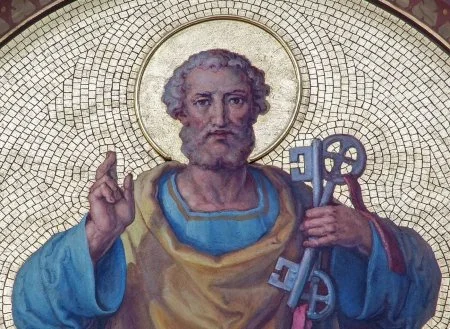Near and far at the same time. Religiously and culturally, Portugal has a similar profile to Italy, where the Reformanda Initiative is based. A historically Catholic country steeped in Counter-Reformation Catholicism, only in the last century has it opened up to the evangelical witness that has taken root in Pentecostal, Brethren and Baptist church families.
Read MoreRome is Catholic but it is also Roman. As it opens itself to (Catholic) synodality it strengthens the (Roman) papacy. Those who think that synodality is synonymous with evangelicalism are therefore deluding themselves. It appears to be a mode of catholicity that, while it elasticizes some aspects, it does not touch the decisive ones.
Read MoreSession 1 - Same Words, Same Gospel? The vocabulary of Roman Catholicism contains many biblical words, but is Roman Catholicism biblical? This session will give few examples of the way in which Roman Catholicism uses the right words but it does not embrace the biblical gospel.
Read MoreSession 2 - Why "Roman" and Why "Catholicism?" Roman Catholicism is what the expression tells us: “Roman” and “Catholic”. This session will explain why and what difference it makes for Roman Catholicism to be both Roman and Catholic.
Read MoreSession 3 - Where Is The Roman Catholic Church Going with Pope Francis? The Roman Catholic Church has a long history but certainly Pope Francis (in line with Vatican II) has impressed a new trajectory. This session will provide an analysis of the vision of the reigning Pope and its impact on his church.
Read MoreSession 4 - Can Evangelicals Be United with Rome? Unity is one of the buzzwords in today’s Christian language. Given the fundamental differences with the Roman Catholic account of the gospel, can we pray together with Catholics? Do mission together? Collaborate for the good of society?
Read MoreSession 5 - Communicating the Gospel to Roman Catholics What are the best practices in seeking to evangelize Roman Catholics? This session will give tips on how to effectively engage Roman Catholic friends and neighbors with the gospel.
Read MoreWhile the influence of Thomas Aquinas on Western theology is beyond dispute, his legacy is contested. In current evangelical studies, there is a kind of love story with Thomas, especially as far as his theological metaphysics is concerned. What should we make of this entire discussion? Are Thomas and Thomism(s) the same? What does evangelical thought need to be aware of regarding the strengths and dangers of Thomas Aquinas? How can Rome’s chief doctor be a reference point for evangelical theology? Surveying current literature and debates, this session will try to assess the different and nuanced appropriations of Thomas and Thomism(s), seeking to come to terms with what is at stake for evangelical thought.
Read MoreMay 1st the Catholic Church in Italy will dedicate the entire nation to Mary, demonstrating yet again how deeply rooted Marianism is in the DNA of Catholicism. This act of dedication is a clear demonstration of Catholic theology that indicates where the Church's loyalty lies in times of need. While the Church professes its adoration of the divine Trinity, it is actually to Mary that the church directs its attention and devotion, for it is Mary that is closer, more motherly, and more willing to listen to the supplications of the Church. This then begs the question: Where is Christ? What is His role? Is he not Emanuel, God with us? Is he not the only mediator between God and man? Being God himself in human form, is it not He that intercedes on our behalf? What about the Holy Spirit? Where is He and what is His role? Is He not the one who brings our prayers before the Father in the name of Christ? Is it not He that actively and constantly comforts and consoles the faithful?
Read MoreTHREE YEARS AGO, the Reformanda Initiative released a statement entitled, “Is the Reformation Over? A Statement of Evangelical Convictions”, which affirms the principles of the Reformation and called on international evangelical leaders to sign it. The statement, which began with 25 signatures from evangelical leaders, has been translated into 8 languages and now includes the signatures of over 90 evangelical leaders. Over 300 signatures have been received thus far.
In recent times, ecumenical friendliness between Protestants and Catholics has created ripe conditions for some leaders in both camps to claim that the Reformation is over. While the fact that dialogue has replaced persecution is something to be thankful for, the question remains: Have the fundamental theological differences between Catholics and Protestants/Evangelicals disappeared?
Read More










